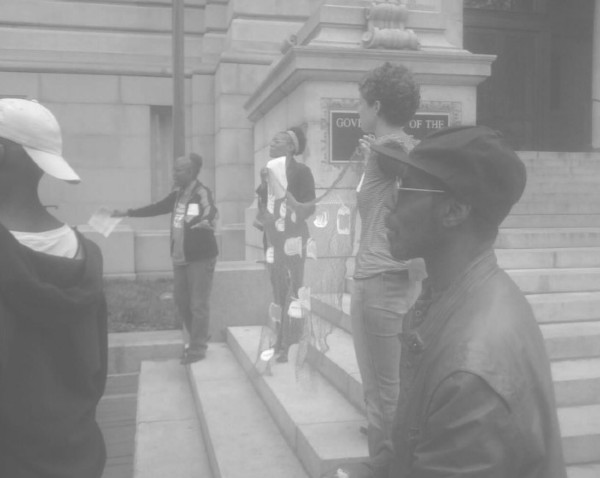District officials are buoyed by the news that President Barack Obama has included $19 million for the city’s Permanent Supportive Housing Program in his budget for the nation.
With Congressional approval, the windfall could more than double the funding for this plan to move chronically homeless people from streets and emergency shelters to stable housing, while providing them with services they need to address problems surrounding their homelessness.
Without such help, the program will remain stalled at its current level for the next fiscal year. Under a spending plan proposed by Mayor Adrian Fenty and being considered for final approval by the City Council May 12, as Street Sense goes to press, funding for the Permanent Supportive Housing Program would stay at its current $12 million funding level for fiscal year 2010.
That $12 million would cover the cost of continuing to shelter and serve 655 single people and 80 families slated to move from homelessness into housing during the current fiscal year. However, the sum would not defray the cost of placing new people in the program.
If the additional $19 million in federal funding is approved, “we can house hundreds more people,” said Fred Swan, administrator of the city’s Family Services Administration.
Yet amid the excitement about a potential increase in Permanent Supportive Housing funds, advocates for the poor and homeless worry that funding for emergency shelters and other social services, which is remaining relatively flat, will not keep pace with increasing needs, especially those associated with the recession and the housing crisis.
Results of an annual one-day count of the city’s homeless population, conducted in January and newly released, found a total of 6,228 literally homeless people residing in the District on a single night in January – a 3% increase over last year.
The number of single homeless people decreased by 6.5%while the number of homeless people in families increased by 23 percent over last year, per the results of the homeless count, managed annually by the Community Partnership for the Prevention of Homelessness.
“There absolutely is a rising need,” said Martina Gillis, advocacy coordinator for the Fair Budget Coalition, a collection of community and church groups and human service providers that organized a May 6 demonstration outside of city hall to advocate for more spending on housing, adult literacy, temporary cash assistance and homeless programs.
“A lot of our member organizations are seeing people who have never accessed (assistance) programs in their lives. They are losing their jobs and trying to navigate the social services system. It’s hard to get access to services, anyway. But to go and be turned away because there is no funding…We know the need is increasing.”
City officials have stressed the importance of getting homeless people into permanent housing and out of the city’s emergency shelters, including the 300-bed Franklin School Shelter, which was closed last fall.
But they also emphasize the need for austerity as they struggle with a shortfall estimated at $800 million for the coming fiscal year, a budget gap blamed on declining business and property tax revenues.
According to the mayor’s proposed budget, homeless services would receive $54.8 million for the coming year, a decrease of roughly $600,000 from the current fiscal year. The Fenty administration has offered assurances that homeless services will continue at the current level, stating that the reduction in funding is due to efficiencies gained through departmental reorganization.
But according to the newly formed Homeless Emergency Response Workgroup, a broad group of homeless people, advocates and providers, more is needed because city emergency shelters already are strained beyond capacity. A survey conducted by the workgroup indicates that homeless individuals were turned away from city emergency shelters 226 times over the eight nights between April 22 and 30.
The need for additional beds is acute, said Maureen Brown.
“I’m currently homeless and for four or five nights I slept outside.,” she said “They definitely need to open more shelters.”
Another homeless woman agreed. “I was out in the rain last night. I have full blown AIDS,” said Renee Paige. “I just got out of the hospital.”








